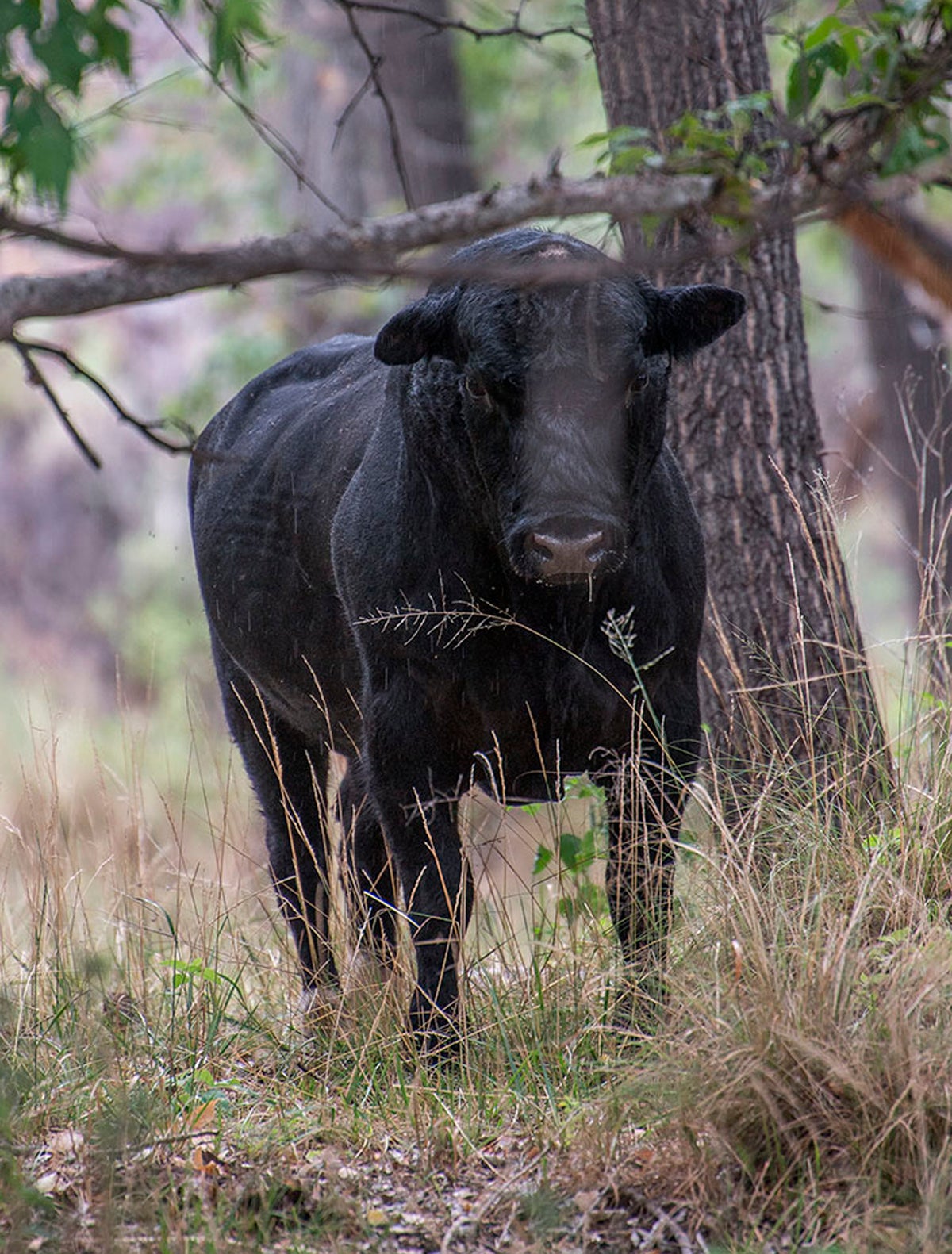
Ranchers are asking a U.S. district judge to delay what they describe as a potential mass slaughter of as many as 150 “unauthorized” cows on public land in southwestern New Mexico.
Plans by the U.S. Forest Service call for shooting the cattle with high-powered rifles from a helicopter and leaving the carcasses in the Gila Wilderness. Critics say that could result in an estimated 65 tons of dead animals being left in the forest for months until they decompose or are eaten by scavengers.
Officials closed a large swath of the forest Monday and were scheduled to begin the shooting operation Thursday. After hearing hours of arguments Wednesday, Judge James Browning said he would review the case and make a decision before the end of the day.
The New Mexico Cattle Growers' Association, individual ranchers and the Humane Farming Association filed a complaint in federal court Tuesday, alleging that agency officials were violating their own regulations and overstepping their authority.
The complaint states that court intervention is necessary to put an immediate stop to “this unlawful, cruel, and environmentally harmful action, both now and in the future.”
The ranchers say the agency's existing regulations call for shooting the animals as a last resort and could set precedent for how federal officials handle unbranded livestock on vacant allotments or deal with other land management conflicts across the West.
“There’s a severe danger here, not just in this particular case and the horrific results that it will actually bare if this is allowed to go forward. But it also has long-term ramifications for the power of federal agencies to disregard their regulations that they themselves passed,” Daniel McGuire, an attorney for the ranchers, told the judge.
The Gila National Forest issued its final decision to gun down the wayward cattle last week amid pressure from environmental groups to protect the Gila Wilderness. The groups have been raising concerns for years that cattle are compromising water quality and habitat for other species as they trample stream banks in sensitive areas.
Much of the debate during Wednesday's hearing centered on whether the animals were unauthorized livestock or feral cows, as the Forest Service has been referring to them.
Ranchers contend the cattle in question are the descendants of cows that legally grazed the area in the 1970s before the owner went out of business. They pointed to DNA and genetic markers, saying the temperament of the animals doesn't mean they cease to be domesticated livestock.
As defined in Forest Service regulations, unauthorized livestock refers to any cattle, sheep, goats or hogs that are not authorized by permit to be grazing on national forest land. The regulations calls for an impoundment order to be issued and the livestock rounded up, with lethal action being a final step for those that aren't captured.
Despite issuing such an order earlier this month, the agency argues it's not required to follow the removal procedures outlined by the regulations because the cattle don't fit the definition of livestock since they are no longer domesticated or being kept or raised by any individual.
Government attorney Andrew Smith said the cows have no pedigree.
“So it does make a difference what these cows are. They're multigenerations of wildness going on,” he told the judge.
Smith also argued that Congress has charged the Forest Service with protecting national forest land and that eradicating the cattle would put an end to decades of damage. He said previous gathering efforts over the decades only put a dent in the population but that an aerial shooting operation in 2022 was able to take out 65 cows in two days.
If the judge delays the project, Smith suggested that the population would rebound and last year's effort would be wasted.
McGuire countered that Congress conferred authority on the Forest Service to make rules and regulations to protect and preserve the forest, not a license for the agency to do anything it wants.
“The Forest Service has a specific regulation that describes how they’re supposed to remove these unauthorized cattle,” he said. “They simply don’t want to follow it because they say it’s too hard. ... Well, I’m sorry that’s not actually an excuse to not follow the regulations.”







